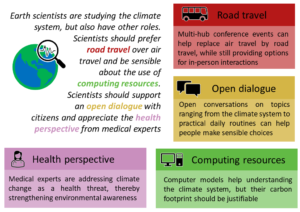
Fig 1 — Artist impression of Earth (source: Unsplash, Elena Mozhvilo)
The much anticipated COP26 — even more so because of its postponement — is now already a few months behind us. There has been a lot of attention in the media, including on the BG blog. We have seen mixed reactions following the final statement at COP26: ranging from disappointment about lack of ambition to realism and optimism from other perspectives. Regardless of how you feel about the agreed commitments, we will see in the coming period which promises will be translated into meaningful actions. This is also a good moment to think about what more we can do as a community of climate scientists to address climate change. In this blog post, Gerbrand Koren, an assistant professor at Utrecht University and member of EGU BG’s early career representatives team, shares his personal reflections.
Communicating about climate change
As climate scientists we have an essential role to play: our scientific work aims to contribute to better understanding of the climate system and we are equipping the next generation of students with the tools and knowledge needed in the coming decade(s). Although there have been many long-running initiatives to communicate climate change to the general public, we should keep investing time in this and try to establish new effective means of communication. An exciting initiative is the ‘26,000 Climate Conversations’ project which was set up to stimulate conversations between environmental scientists and citizens about climate change leading up to COP26. I strongly believe that an open dialogue like this remains an essential ingredient for addressing climate change.
Luckily, the climate crisis is not only a concern of environmental scientists, but also medical experts are raising awareness for this issue. Recently, editors of influential medical journals have teamed up to express their concerns about climate change in a joint statement. Perhaps medical experts are taken more seriously, or are at least able to reach part of the general public that is hard to reach by climate scientists. Presenting climate change as a health risk, rather than a change in what can seem like an abstract variable (e.g., global mean temperature) to some, may prove to be an effective means of communication. During the COVID pandemic we have seen that governments are prepared to take far-reaching measures to protect public health. I feel that the climate community should appreciate and embrace this alternative but supporting view.
Leading by example: lowering our carbon footprint
As climate scientists, we should be mindful about our carbon footprint. Before the COVID pandemic, a large fraction of the carbon footprint for many scientists was air travel for attending conferences, workshops and other events. Several studies have stressed that scientists should aim to limit air travel, especially since we have all become experts in online video conferencing tools. However, most of us will agree that video conferences can not fully replace in-person meetings. A promising alternative are the so-called multi-hub events, where a conference is distributed over a limited number of locations (e.g., the SPARC 7th General Assembly that is organized in the US, UK and China). To me, this is a great example where road travel becomes a viable alternative, while still allowing for in-person interactions and opportunities for extending professional networks.
Finally, we should also think about the carbon footprint of our research activities, for instance those related to high performance computing. Computers have shown an impressive increase in their computing power and storage facility, that is still ongoing and expected to continue in the coming years. This has resulted in more accurate model simulations in different applications, ranging from short-term weather forecasts to long-term climate projections. There is however a downside, which is the increasing use of energy for all the calculations and storage. This is now being recognized and I feel that we should consider this aspect when planning to perform computer simulations and further increasing model resolutions.
Fig 2 — Overview of different elements that relate to the role of climate scientists.


Marin Chaveyriat
Nice call for action !
Scientists who want to address climate change can also directly lobby their government, as suggested by Dr James Hansen :
https://citizensclimatelobby.org/about-ccl/advisory-board/dr-james-hansen/